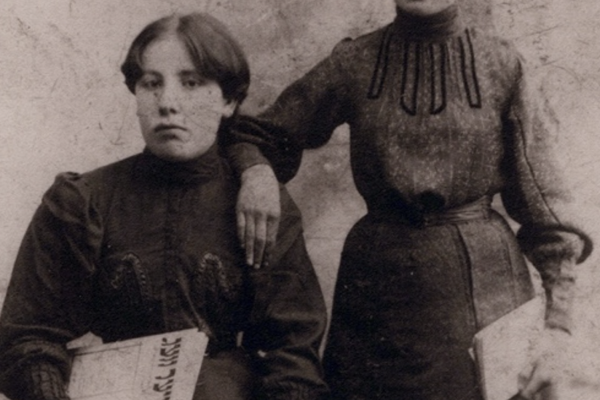I am grateful to the four readers who engaged with my essay for their careful attention, and also for showing me inadvertently how it failed to make its mark. I first put the phrase “technologies of humility” into circulation in 2003. The “technologies” I support are not, as my essay observes, merely a mental state—“a stance of modesty vis-à-vis the powerful and still poorly understood forces of nature and society”—but rather a set of “institutional mechanisms” designed to incorporate “memory, experience, and concerns for justice into our schemes of governance and public policy.” The humility I advocate is thus not a personal attitude but rather a collective practice of societal self-reflection aimed at understanding why we persistently repeat the same kinds of mistakes, overestimating our power to control futures as yet in-the-making.
This is precisely the distinction that Zeynep Pamuk charges me with conflating, but her own comments suggest an imperfect understanding of the ways in which the regime of preparedness makes U.S. decisionmakers impervious to their own blind spots. Knowledge, Pamuk says, can be incomplete not only because of what we do not yet know, but also “because of choices made about what types of knowledge should be pursued, and how.” Indeed! The first rule of policy is that one must frame a problem right in order to find the right facts and come to the right conclusions. My aim is to call attention to the manifold points at which well-intentioned policymakers, well-prepared for the “coming plague,” failed to assess what I have called the “politics of public health.” Instead of worrying about the political context into which their decisions would land, they repeatedly focused on closing gaps in our scientific knowledge of how pandemics arise and spread. As recently as January 2021, Margaret Hamburg, one of the nation’s most prominent public health experts, said in a public forum that we had failed because of insufficient “efforts to identify critical gaps in knowledge that would affect the contours and control measures for this pandemic.” Her emphasis was on more biological knowledge and better management, not absence of political understanding and resulting lack of control.
Jana Bacevic is correct in her assertion that “the success or failure of prediction to inspire precautionary action tells us much more about ourselves than our knowledge of the world.” From that starting point, however, she veers into an analysis that focuses on strategic ignorance and responsibility avoidance as explanations for why we choose not to know what would guard us against error. That analysis ascribes both bad faith and too much agency to public health officials and other decisionmakers—a position for which I see little evidence in this crisis. Bacevic concludes that, from her viewpoint, neither “generic overconfidence or a lack of humility seem like a pressing problem.” But she misunderstands the systemic nature of the knowledge deficits that societies fall into when choosing between courses of action. As I have argued elsewhere, there are deep-seated, systematic, institutional commitments to ways of knowing—civic epistemologies as I call them—that consistently demote some kinds of knowledge at the expense of others. For Americans, this results in an over-valuation of predictive, technical knowledge in relation to insights from history, sociology and politics. The three predictive exercises analyzed in my essay all exemplify that lack of self-awareness, and all point to the dangers of, in Bacevic’s words, “boldly and confidently fight[ing] for the futures we want to see.”
Alexandre White, in contrast to Bacevic, underscores the risks of coupling boldness of vision to bad motives in his historically sensitive account of the West’s “pernicious way of viewing the rest of the world as a reservoir of threatening contagion.” But he surely goes too far in attributing the multiple and dispersed policy errors of the pandemic to “a distinctively Western vision of a history of self-styled superiority to rest of the world, especially when it comes to disease.” A closely investigated comparative study I am co-leading of national approaches to COVID-19 policies disclosed no such monolithic “Western vision.” The U.S. self-understanding of a technologically superior society, able to cure any ill with a well-timed technological fix, has to be sure enjoyed wide currency in the post-colonial world, but that technocratic vision is precisely what needs to be shaken in the aftermath of the pandemic, with a turn toward humility as I suspect White would agree.
Jay Kaufman misconstrues humility as “a matter of personality traits” or “a better attitude” rather than as a call for different institutional commitments and practices as discussed in my essay. I am, however, heartened that he then whole-heartedly embraces the playbook from my 2003 article, as well as a half-century of other writing on risk and regulation by scholars in my field of science and technology studies. I could not agree more with his assessment that the disasters leading to our own sad “necropoli” (to borrow White’s term) can be traced to a “virulent opposition to social reciprocity, to any sense of a common and mutual commitment to one another as members of a shared community.” Indeed, in our comparative study and elsewhere, colleagues and I have repeatedly emphasized the absence of mechanisms for generating, even temporarily, a sense of a common purpose in the United States, the very failing that Kaufman also bewails. Harvey Fineberg, a renowned public health intellectual, assumed that the U.S. federal government would be able to draw the nation together in ten weeks. The gubernatorial actions in Florida and Texas, among others, demonstrate that his confidence was misplaced. We need to revisit that territory of failed calls to action with due humility about the limits of our expertise, our wisdom, and our capacity to unite in times of national crisis.
Big societal failures of self-awareness are self-inflicted wounds that can be traced, I argue, to the habitual ways in which we normally generate collective knowledge. All four respondents recognize this problem, but they do not take further steps to ask how we got there or, having done so, how we might become wiser the next time around. The technologies of humility I propose would require us to improve our skills of normative forecasting: to ask whether we framed our questions right; to draw in marginalized and uncomfortable viewpoints; to review our history of crises with less triumphalist eyes; and always to identify who is most vulnerable if we go wrong, and who would bear the costs.
I invite others to take up this conversation, knowing that the answers to our most critical problems may lie in zones where our collective, deeply institutionalized, and culturally trained habits of thought do not easily allow us to roam: where, as T. S. Eliot suggested in what could be read as a plea for technologies of humility, things are:
Not known, because not looked for
But heard, half-heard, in the stillness
Between two waves of the sea.








